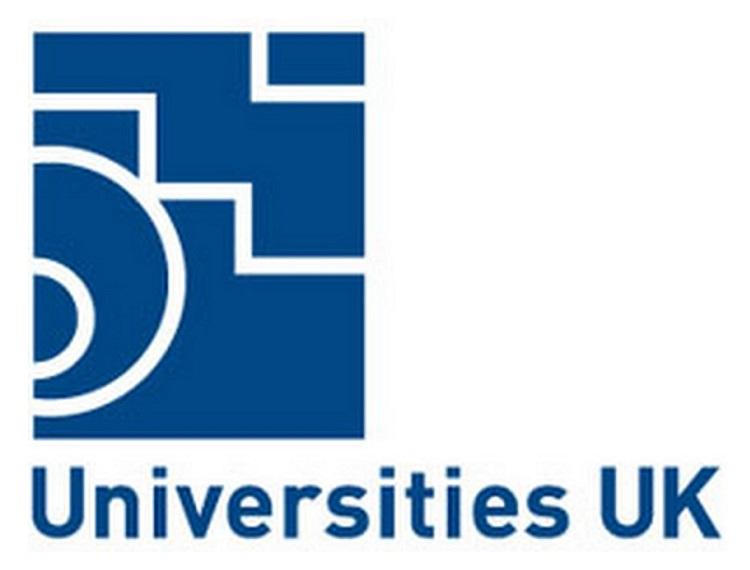Universities UK disappointed with MAC report on international students

Universities UK responded today to the publication of the Migration Advisory Committee (MAC) report on the impacts of international students in the UK.
 Responding to the report, Professor Dame Janet Beer, President of Universities UK and Vice-Chancellor of the University of Liverpool, said:
Responding to the report, Professor Dame Janet Beer, President of Universities UK and Vice-Chancellor of the University of Liverpool, said:
“While the report recognises the enormous contribution international students make to life in the UK, we are disappointed with its main recommendations. We agree that the government and the sector should continue to work together to grow the number of international students, but growth will only be possible if we have an immigration system that encourages talented international students to choose the UK.
“The ability to work in a skilled job for a limited period after graduation is, for many prospective international students, an important part of the overall package when deciding where to study. Universities UK called last week for a new graduate visa that would make the UK more attractive to students and would allow a wider range of employers, in all parts of the UK, to benefit from access to talented graduates from around the world. This improved post-study visa would put us on a par with what is offered by countries such as the US, Canada and Australia.
“While the UK continues to count international students as long-term migrants in its net migration target, there is a continued pressure to reduce their numbers. This adds to the perception that they are not welcome here. In countries such as the US, Canada and Australia, international students are classified as temporary migrants, alongside tourists and visitors. A change of policy from government in this area would have public backing. Polling suggests that the British public does not see international students as long-term migrants, but as valuable, temporary visitors.
“We know from the latest government data that there is very high visa compliance by international students. The vast majority come to the UK for a period of study, then return home.
“This is an area in which the UK can say it is truly world-leading. While the UK remains one of the most popular locations in the world for talented international students and staff, we have seen a slowdown in recent years compared to other countries. The UK could be doing much better than this, with the potential to be one of the world’s fastest growing destinations for international students and staff. There is now a real opportunity for the UK to develop an immigration policy that recognises the value of international students as temporary visitors and tells the world that they are welcome here.”
The CBI has responded the Migration Advisory Committee’s report on the economic and social impacts of international students.
Matthew Percival, CBI Head of Employment, said:
“This report rightly recognises the significant economic benefits international students bring to the UK. Their contribution boosts growth across UK regions and nations and supports the sustainability of our higher education system.
“Their social and cultural input is equally important, fostering a global perspective amongst students studying in the UK, helping businesses and society become more diverse and increasing our soft power around the globe.
“Making it easier to switch to work visas after their studies will help the UK to increase its market share of international students amid fierce competition.
“And business agrees with the report that removing international students from the net migration target is no panacea – the target should be scrapped altogether and replaced with a system that prioritises people’s contribution.
“To maintain the UK’s world-leading position as a provider of higher education – a truly great British export – it’s vital this useful evidence is reflected in a post-Brexit immigration system that balances openness with control.”
In 2016-17, 442,375 international students made up 19% of all students registered at UK universities (6% from the EU and 13% from non-EU countries). The income and economic activity of these students resulted in £25.8 billion in output and 206,600 jobs for the UK economy in 2014-15 alone. International students also enhance the academic experience of domestic students and add to the UK’s soft power abroad, with 57 current world leaders having been educated in the UK.
In other countries, it is widely accepted that international students are temporary citizens whereas in the UK they are categorised alongside those who have a route to staying in the UK permanently. For example, in the USA international students are classified as non-immigrants alongside tourists, business visitors and those on cultural exchange programmes, in Australia they are classified as temporary migrants alongside tourists and visitors and in Canada they are classified as temporary residents.
In terms of international student enrolments, countries such as USA, Australia, France and Germany all continue to grow at a faster rate than the UK, with growth rates in 2014-15 of 9.4%, 10.7%, 1.8% and 8.7% respectively. Over the same period, the UK’s international enrolments grew by just 0.5%. See the latest International Facts & Figures publication.
During its annual conference last week, Universities UK called for a new visa to allow international students to gain work experience in the UK for up to two years after graduation. In 2012, the UK government scrapped the post-study work visa which had allowed international (non-EU) students to stay in the UK and work for up to two years after graduation. The new visa would allow a wider range of employers – in all parts of the UK – to benefit from access to talented graduates from around the world, including small and medium employers who do not have Tier 2 sponsorship licences, usually due to the high costs and bureaucracy involved.
A new poll published last week from ComRes, based on the views of more than 4,000 British adults, revealed also that in relation to the UK government’s immigration policy, only a quarter (25%) of British adults say that they view international students coming to study at UK universities as immigrants. It revealed also that nearly three quarters (72%) of British adults polled think that international students should be able to stay in the UK post-graduation for one year or more to gain work experience.











Responses